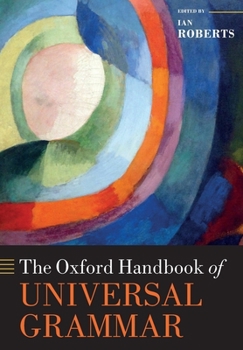The Oxford Handbook of Universal Grammar
Select Format
Select Condition 
Book Overview
This handbook provides a critical guide to the most central proposition in modern linguistics: the notion, generally known as Universal Grammar, that a universal set of structural principles underlies the grammatical diversity of the world's languages. Part I considers the implications of Universal Grammar for philosophy of mind and the philosophy of language, and examines the history of the theory. Part II focuses on linguistic theory, looking at...
Format:Paperback
Language:English
ISBN:0198826176
ISBN13:9780198826170
Release Date:February 2019
Publisher:OUP Oxford
Length:688 Pages
Weight:2.65 lbs.
Dimensions:1.5" x 6.6" x 9.6"
Customer Reviews
0 rating





